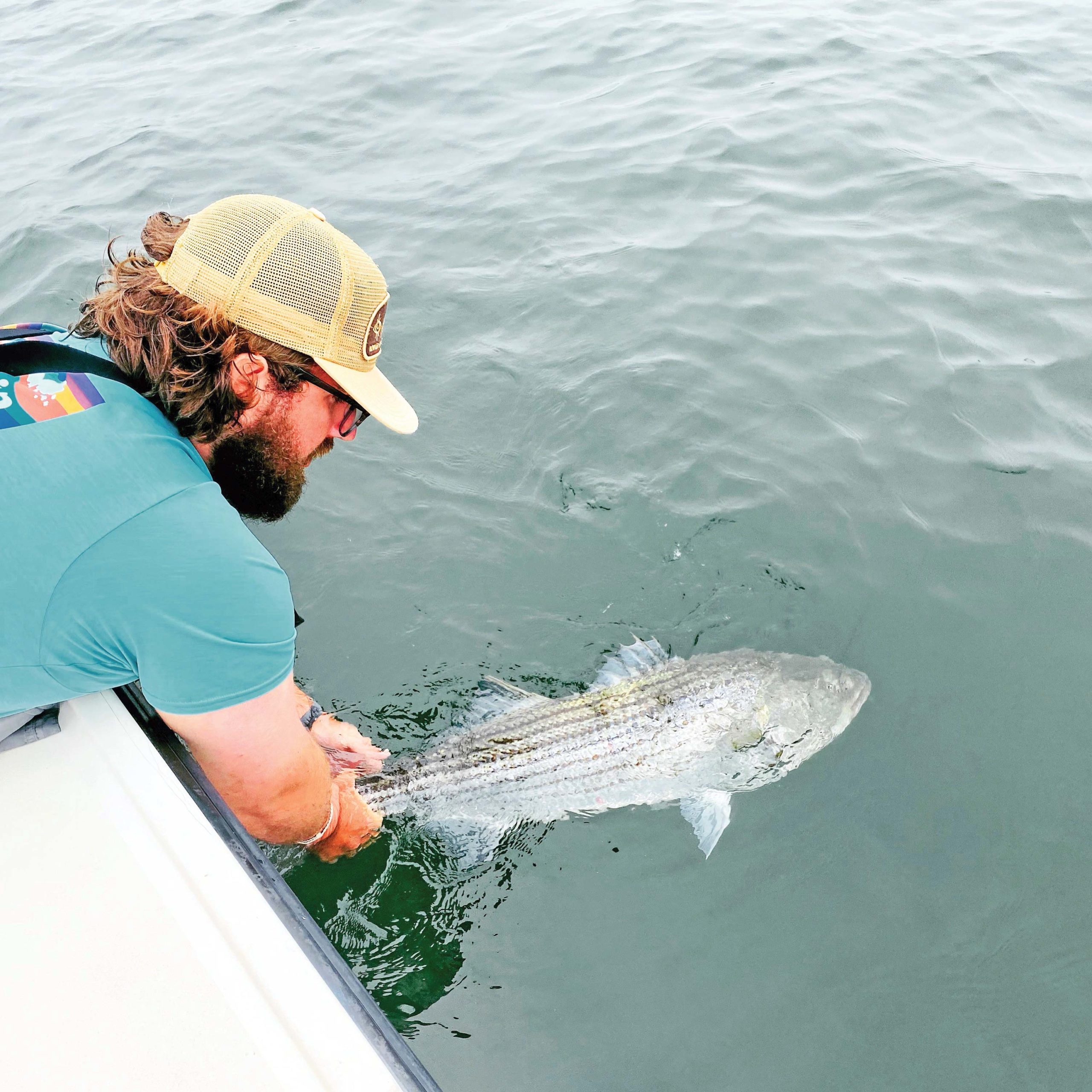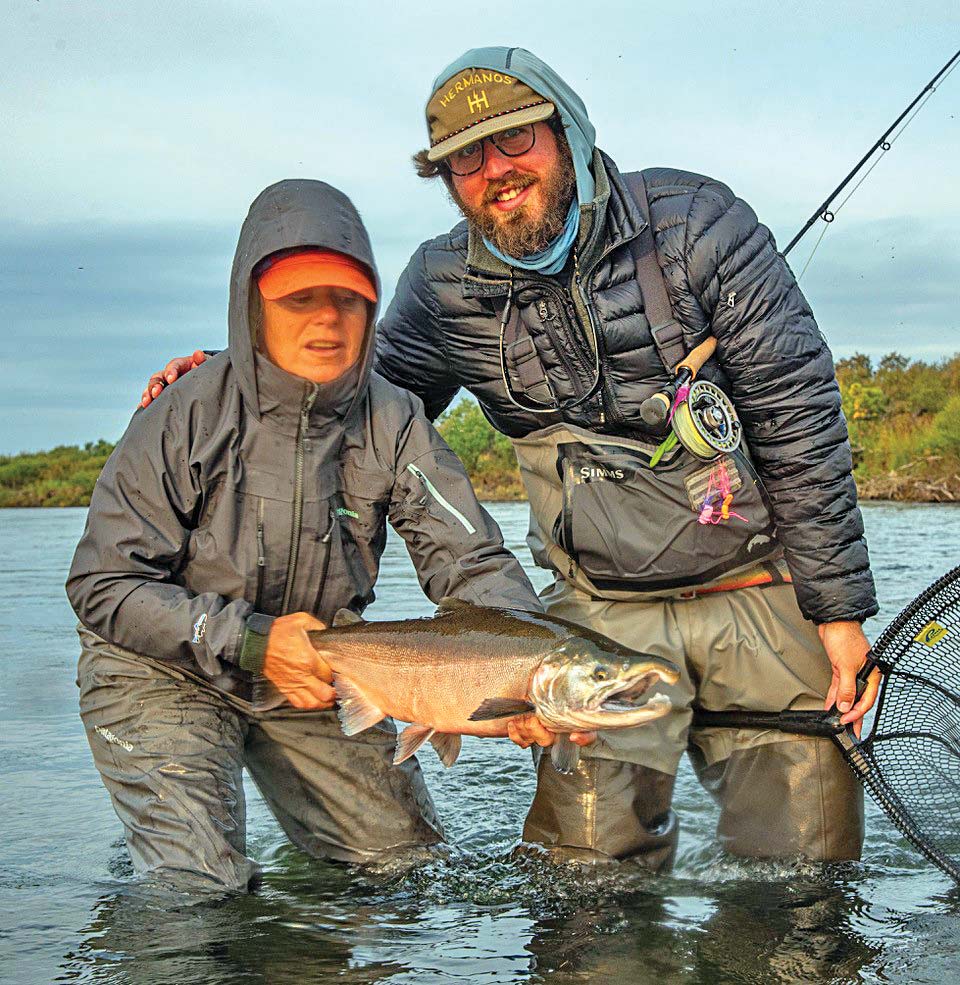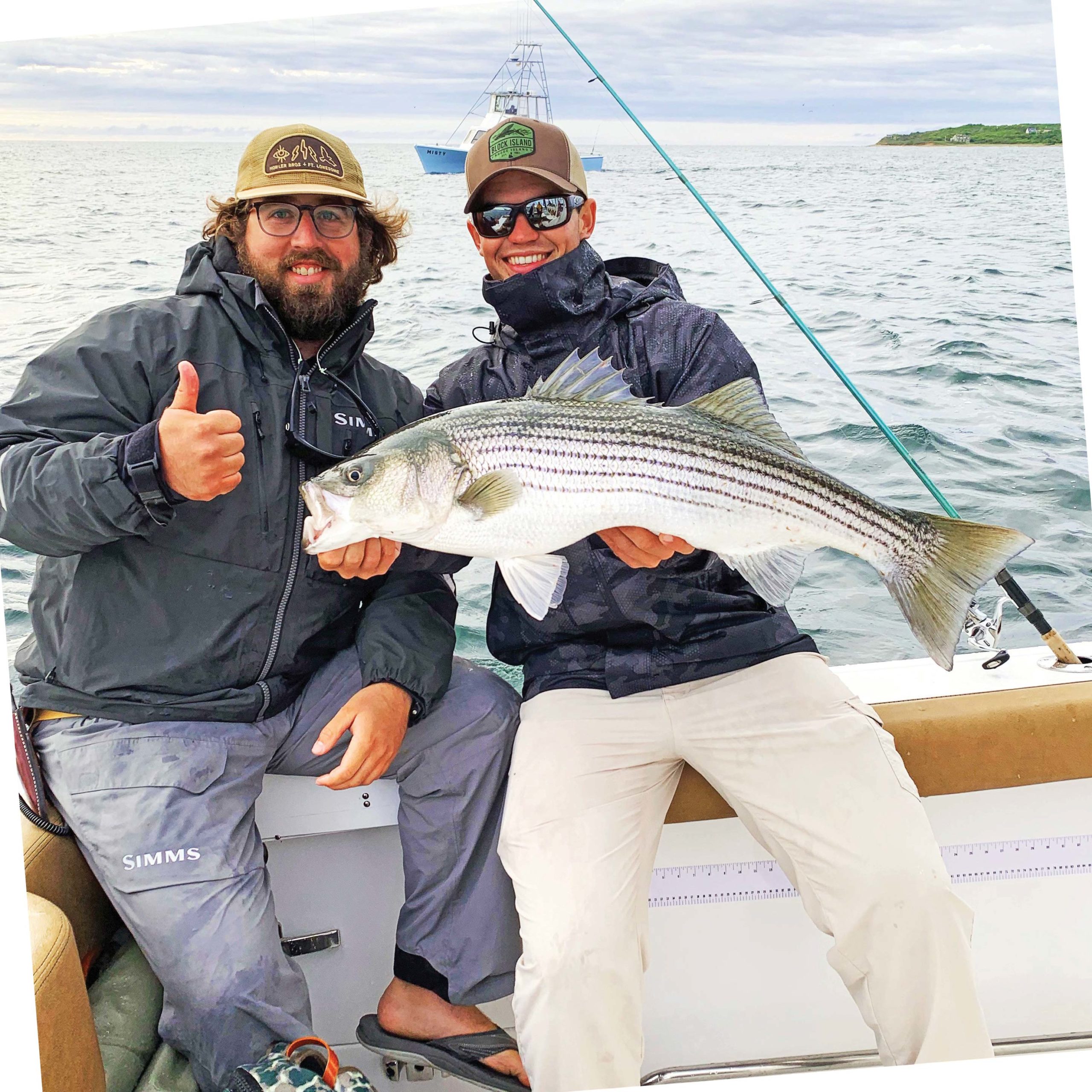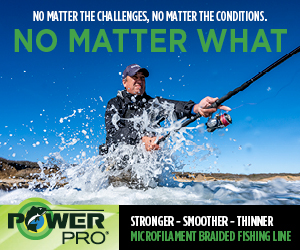
An experienced guide talks about how to get the most out of your dream fishing adventure.
So, you’ve made the decision to commit to your dream fishing adventure. Whether you’ll be arriving by floatplane to some remote location in Canada or Alaska, or you’re heading to some equatorial sportfishing hub in the tropics, you’re going to have to bring everything you need and leave behind anything you really don’t. Lucky for you, I have guided on the Kanektok River in Alaska for salmon and leopard rainbow trout, on the tributaries of Lake Erie for steelhead and brown trout and I currently run a saltwater sportfishing charter in Rhode Island. This means I have led hundreds of excited anglers from around the world through their once-in-a-lifetime adventures and, let me tell you, I have seen some things. I have witnessed people having some of the best days of their lives as well as some of their worst. So, if you want to make sure you’re in the “best” category, listen up…
Mental Planning
This is probably the most fun part of the whole process—except for actually fishing. If you’re anything like me, the fishing trip you are about to embark upon is probably all you can think about for weeks leading up to your arrival. I can picture you now, sitting at your desk, tuning in and out of a Zoom meeting, taking every chance you can to sneak a peek at a bonefish peeling drag, a tarpon exploding out of the sea, a salmon eating a dry fly or a tuna smashing a popper. You can already feel the water rushing past your waders or the warm salt sticking to your face as your guide throttles down for a distant flat. In my mind, you can count this as the same type of visualization Tiger Woods talks about before he makes a championship putt. With proper planning and practice before a trip, you too have a shot at feeling that same type of triumph.
But long before you book, do your research! I cannot stress this enough. Make sure the trip is for you. Not every trip comes with a lake-view cabin, lobster tails and a Tempur-Pedic. When I was guiding in Alaska, I lived in a tent for three months straight and my weekly anglers slept in tents as well. There were no restaurants, alcohol, televisions or even normal toilets. While I think a large part of this responsibility is on the outfitter to make sure you are fully informed about what you are getting into, there’s no turning back once you’re in a remote location like backcountry Alaska or a small cay in the Atlantic. Flight schedules are at the will of Mother Nature, and just when it’s most inconvenient for you, she will crank the elements up to 11.
With that being said, make sure you can fully detach from life. Many faraway adventures will provide only limited opportunities to connect with work and home. At many camps and lodges in Alaska, British Columbia, Russia, South America, etc., there is no cell signal or Wi-Fi. If you need to be able to check in with work every day, wish your grandmother a happy birthday, or post your grip and grins to Instagram to keep your follower count up, make sure you actually can before booking the trip. My camp in Alaska had some Wi-Fi connection depending on the weather, but even at its best, you’d be hard-pressed to view an email attachment, let alone video chat with your kids or scroll through TikTok. So read everything the outfitter or guide provides on their website—this will help you lighten your load and set your expectations. Their literature or website should describe their accommodations if you are staying, as well as the things you will need to bring and the things they provide. Even if you are just going on a one-day float trip, it can never hurt to reach out with a phone call or email to answer any questions you might have.
Check Your Gear
There are a few ways that gear can cause issues when embarking on one of these trips. This includes issues with anything from clothing, waders, footwear and foul weather gear to rods, reels, leaders and so on. I will preface this section by saying that many guide services will provide you with all the actual fishing gear you need (rod, reel, line, leader, lures, flies, etc). More often than not, that gear is dialed-in perfectly to the location and style of fishing you will be doing. It is not uncommon that bringing your own fishing gear will actually create more work for you or your guide if you are not rigged up properly. Again, reading everything the outfitter or guide provides and asking questions will save precious moments of your trip.
One of the worst things that can happen is showing up with inferior gear. The most important part of fishing hard for several consecutive days is being comfortable. Let me tell you right now, your hoodie and windbreaker are not going to cut it in Alaska, and your jean shorts and lucky Budweiser t-shirt are going to fall well short of optimal comfort in the tropics as well. During my first season in Alaska, I had a client get off the bush plane with a pair of waders that filled with water within the first hour of fishing. They had more holes than O.J. Simpson’s alibi. Luckily for him, I had a second set that I lent him for the remainder of his trip (not that I really had any choice). Double-check the condition of your gear before you leave home. Head to your local tackle, fly or outdoor shop and inquire about proper gear for your trip. If you are going to be spending any time on boats, you need a solid water and windproof jacket. Even if it’s the heat of summer, it’s always chilly doing 30 knots through the fog at first light. If you’re going to be wet-wading, make sure you have footwear better than a pair of Walmart flip-flops. Remember that these guide services deal with people just like you every day, and they want you to have a great time. They will be happy to spend a few minutes on the phone or responding to an email because they know it will make the trip better for both of you.

More Than A Day
If you are spending more than a day fishing, make sure you bring extras and backups for a few key things.
Sunglasses: I cannot tell you how important they are, and people show up to my boat without them all the time. A full day on the open ocean in bright sun without sunglasses will leave you feeling practically blind by the end of the day. In many other circumstances, such as flats fishing, you will actually need them to see and target fish. I also cannot tell you how many pairs I’ve seen go overboard or break or get left in the truck. I always keep a few spares in my backpack.
Layers: There’s always a chance that you will get wet, cold or hot when you least expect it. It can make your trip a thousand times better if you have an extra layer or two in your day pack to swap out or peel off should the need arise. This includes a hat. I have seen literally hundreds of hats fly off in the wind. The last thing your guide wants to do is turn the boat around to fish your Cabela’s hat out of the drink. When wading, bring an extra pair of socks; trust me on this.
Medications / Seasickness pills: If you know you get seasick, please bring the proper tools to mitigate it. Many guides will have some, but they run out, and they don’t know that there was one time on your cousin Jimmy’s boat in 2004 when you ralphed over the side while begging to go home and haven’t been on a boat since. If you get seasick and force the boat to turn around, it will not only cost you full price of the trip but also ruin the day for any other clients on the boat.
Sleeping in Tents: If you’re truly roughing it, make sure you bring quality sleeping gear and plenty of clothes to keep dry because in places like Alaska, it is pretty tough to dry anything out. I think it’s essential to buy high-quality sleeping bags and base layers. A solid sleeping bag rated to 15 or 30 degrees will keep you toasty in even the most unpredictable summer weather. I’m a huge fan of merino wool base layers. While expensive, they provide unparalleled comfort and warmth and they are naturally anti-bacterial so they can go through plenty of wears without getting smelly. I rotated through three pairs of base layers a week, allowing me to wash and rotate appropriately.
Practice, Practice: Whether it’s a spinning rod or a fly rod, do some practice casting leading up to your trip. If you are new to the sport or even if you are just rusty, a casting lesson can make an incredible difference in the quality of your trip. Don’t scoff at this recommendation. Great casting catches great fish – (and bad casting doesn’t).
The Don’ts
As mentioned earlier, do not show up to your first day of fishing with a rod and reel that hasn’t seen the light of day in three years. And if you reached out to your guide service and want to use your own gear, make sure it’s ready to go before hitting the water. This will end up saving you and your guide precious fishing time. Additionally, don’t be the guy who shows up with 10 rods! All you are doing is paying more for your luggage; you won’t use them all, I can promise you that. Please take note of what your guides use, their storage methods and organizational strategies; odds are they have it pretty dialed in.

Your Guide
First and foremost, listen to your guide. He or she definitely knows more about the fishery than you do and has a pulse on what’s going on—beyond that, they often benefit from the experience of other guides on the same body of water. Don’t assume that you already know how to do it—go into the trip with an open mind and be willing to learn something new. Any good guide will tell you that they learn something on every trip, and so should you. Nothing makes your guide happier than getting you hooked up to a fish—let them do their work and follow their lead, even if you did something a different way with another guide service. Have an open mind about technique, locations and opportunities. Guides can’t stand closed-minded, know-it-alls. If you are so good at fishing and know how to do everything so well, why even hire a guide? Remember that they spend every day on the water and you are in their office. Listen and learn.
Also, please do not, under any circumstances, say the words “We gotta get a good picture of this one” before you actually land the fish! That is a kiss of death from the fishing Godfather. Say any close iteration of that phrase and I promise you, that fish is going to break off, spit the hook, flop out of the net, get eaten by a shark or any other ridiculous scenario you can think of to ruin your photo op and volcanic excitement. It is almost a guaranteed jinx.
Treat your guide with respect—no one will try harder to get you hooked up than a guide who feels like his clients respect him. If you have a good attitude and remember that you are out there to have fun no matter how the fishing goes, you could actually gain more than some fishing experience. I have become lifelong friends with a surprising number of my clients! I speak with many of them on the phone once or twice a month, exchanging stories, talking about new ideas, flies, lures and the like. When we get together to fish and have a few drinks, it is as though no time has passed at all.
If you have a lackluster trip, remember that your guides cannot control the fishing. The guides don’t want to have bad trips either and when a trip is going that way, nearly every guide will pull out all the stops to find a bite. So as long as you can tell your guide is trying his hardest, don’t let your fish count influence your tip. It is customary to tip approximately $100 per day so if you fish for one day, that’s $100. If you spend seven days fishing in Alaska, that’s $700; there is no bulk discount for gratuities. Guides will remember if you value their effort. Feel free to tip more if you felt the guides went above and beyond; odds are your tips will significantly impact their quality of life.
You are about to embark on an incredible adventure that few people on the planet have the luxury of enjoying. So remember to enjoy it! Go with a positive attitude and remember how lucky you are to fish and spend time in such amazing places. I guarantee that your positive outlook will translate into more fish and more laughs. There is nothing more rewarding for a guide than putting their favorite clients on the fish of their dreams. With preparedness and practice, you can become a new favorite client who stays comfortable and is excited for every moment spent fishing these spectacular waters.



